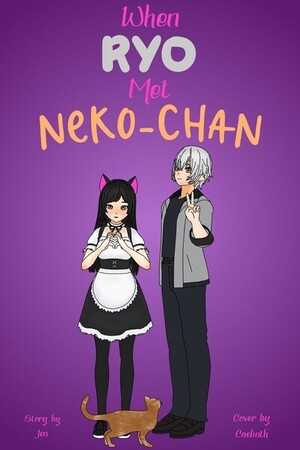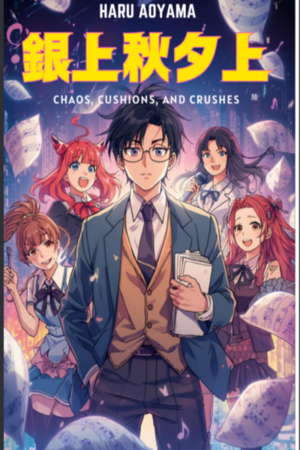Chapter 0:
Home of Sorrows
The Bard
"Once I beheld her, upon a starry night, locks of moon-silver, and eyes starry-bright. Twice I loved her, ‘neath pitch-darkened sky, smelling her rich myrrh, and revealing honeyed sigh. Thrice I called her, noble-given name, answers all demure, we play this risky game."
-Excerpt from “Spin the Tale, Dear Lady.”
Some things in life are inescapable, no matter how hard you try. I learned that lesson when I was but a boy, trapped in a home filled with lonely despair. Nothing else can occupy the space in your heart reserved for family, an adage that holds for me as it does for everyone else.
My parents were young when they met and fell in love—a story I heard only in retrospect during the quiet moments when my mother wept, deep in the night.
My father was a traveling merchant, a man pompously well-bred and educated. My mother was a village girl, an unwitting siren that lured my father close and locked him in place. Their early years together were full of shared laughter and tears, joys and sorrows, but it was not long before the happier side of life faded, leaving only bitterness in its wake.
My grandparents on my father’s side were against their affair. They saw only a poor farmer’s daughter, a wicked manipulator trying to better her lot in life. Similarly, my mother’s parents forbade her from meeting him, fearing he would trap her in a life of isolation and misery. My parents did not care—they met in secret, whiling away their time under starry skies, locked in one another’s presence.
Mother would often reminisce about those first few months, how their furtive liaisons would pluck at her heartstrings. It was pure romance, the like you can only find in bardic sagas. But as is often the case in epic tragedies, it was not meant to last.
Everything changed when my mother became pregnant with me. To hear her tell the story, I was a whirlwind of controversy. A baby born out of wedlock is a social and financial burden on everyone, and so a hasty wedding was prepared despite each families’ misgivings. And thus I was brought into this world, an unwanted and unaccounted-for charge, a yoke that tied my parents together as assuredly as it threatened to drive them apart.
To say my parents did not love me would be a lie; they did, in their own ways. Father made the necessary arrangements to settle down and opened a permanent store in a nearby city, intent on raising me to be a proper member of society. Meanwhile, my mother said her goodbyes and bundled me up, then made the arduous journey to reunite our budding family. Both made sacrifices for my sake, living proof of their care for me.
As I heard it, the first few years in our new home were comfortable and content, if not entirely happy. Father grumbled about being tied to one city, but he worked hard to provide a stable life for us. Mother fussed over hectic city life, worried that it was a poor environment in which to raise me, but she made friends and raised me with tenderness and affection.
The three of us often went out in the evenings to sit beneath a willow tree that called our property home. Mother would stroke my hair while I lay in her lap, and tell me stories of far-flung places. Father would sing me lullabies in his rich baritone, holding Mother’s hand until all three of us fell asleep. The memories of napping beneath the shade of that tree, of listening to the wind tinkle through the leaves overhead, are still some of my most cherished. They came from a time when my life—and family—were whole. It was not until I entered the fifth year of my life that the foundation beneath us began to crack.
Mother had gotten close to another shop owner, a man a few years her junior and just starting his career. It was a benign relationship, nothing more than the courtesy of passing conversation, or the occasional cup of tea, but Father became upset over it. He claimed she was treading a dangerous line, and his possessiveness became chains around her ankles. I believe that was the first step toward the end.
Mother pulled back from the world, severing the connections she had spent years cultivating. Where once sweetness grew in her heart, now thorny weeds sprang forth, and Father got a taste of her barbed tongue more often. From thenceforth, every conversation they had was tinged with a melancholy that whispered of crumbling affections, and it did not take long for their testy words to become antipathy.
By my eighth birthday, Mother was a shell of her former self. Gone was the plump and cheerful countenance, replaced by haggard eyes and gaunt cheeks. Her social circle had faded, and unceasing depression threatened to swallow her whole. I had become her buoy in the storm, and I trod carefully to not let her drown. Father had resumed his traveling business, abandoning us in all but financial means. He hired tutors to oversee my education—arithmetic, reading and writing, etiquette, magical theory, and swordplay—an act I believe was by way of apology for missing my upbringing.
By my eleventh year, Mother was bound to her bed by ropes of heartache, and Father had ceased writing letters. We still received a generous stipend each month, most of which went into our savings, but it had become an impersonal transaction.
I had grown into an isolated and reserved child, and I threw myself into my studies with escapist fervor. I soaked up everything and grew proficient in many skills. My teachers all applauded me, and had my parents been concerned with me, they would have seen a blossoming genius, a boy able to learn like few others. Languages, music, history, magic, swordplay, I mastered each to one degree or another, always striving for praise I did not get at home.
In my fifteenth year, things went from bad to worse. In the depths of her anguish, my mother grew ill. The physicians and apothecaries tried to save her, but none could discern the nature of her illness, and with the steady pace of certainty, she withered like a cut flower. The day before I turned sixteen, two things happened: I received the first letter from my father in more than five years, and my mother slipped silently into death.
I crumpled the letter and tossed it aside, unread. If my father could not be bothered to come even when his wife was dying, I could not be bothered to correspond. I buried my mother in an unmarked grave beneath the willow tree she had loved in life, packed what belongings I could, and departed that accursed city. Any tears I had were long since spent, so though my soul was heavy with the loss, my eyes remained dry. Looking back on it now, I think that is what she would have wanted—no mother wants to see their child grieve.
And so I left. Each step I took emboldened me, and it was not long before I found myself standing in front of an inn one town over. I had only walked for half a day, but it felt as if I was in a different world entirely. I booked a room for the night and set about planning my future with all the optimism of a child.
The following morning, I spent most of the money my mother had saved on a lute. I had heard in stories that traveling musicians could make a living by playing at taverns and inns, and without any direction or connections, I saw little else I was capable of. I spent the afternoon asking around town, playing for innkeepers and barkeeps, and auditioning for the life I wanted. I was rejected each time with a hasty apology, a thin excuse, or an outright ignoring. I was not certain what I was doing wrong, so I continued my pursuit well into the evening before someone took pity on me.
“Boy,” a burly man called to me from a nearby table. I was slinking away from the bar after my umpteenth attempt and turned to face him.
“What?” I asked, the tension in my voice reflecting the stress I felt.
“If you’re going to play in a bar, you’ve gotta play bar music,” he said, the hint of a mirthful smile playing across his lips. “Where in the Nine Realms did you learn to play such fancy music?”
I hesitated, frowning. I had spent the better part of an entire day playing the best music I knew—court songs and ballads my high-class teachers had taught me. “I just picked it up,” I lied, hoping the man would drop the conversation.
“If you just picked that up, then I’m the King of Elda,” he said, and the group of men around him cackled. “What’s a high-born lad like yourself doing prancing around low-born taverns?”
My frown deepened. “I’m not—“
“Forget it,” he said. “Come have a drink, we’ll help you out.”
I started to shake my head, then shrugged. I wasn’t going to make any more progress now that the sun was down. “Sure, why not.”
“What’s yer name, boy?” One of the other men asked. He was tall and built like a farmer, with short blonde hair and a few missing teeth.
“Deryth,” I said, slipping into an unoccupied seat at their table. “Deryth McAldor.”
"I'm Zygan, pleasure to meet you," the man said, a wicked grin on his face, "Come on, we will how it's done."
The group of men were brusque, caring little for the etiquette that had been strictly drilled into me. They drank too much, shouted too loudly, and harassed the barmaids with an unconquerable glee. And I loved every second of it. That night was my first step into a world I had never seen before, a carefree and slightly debaucherous lifestyle far removed from the sterile upbringing I’d received.
They taught me many songs—sea shanties and bar songs and rhymes so unspeakably vile I dare not repeat them. They also introduced me to real storytelling. Not the rigid and professional kind you find in books and plays, but the loose, living type of story that grows with each retelling. It was there that I first awakened the bard inside me, and in truth, it was the beginning of my life story.




Please sign in to leave a comment.